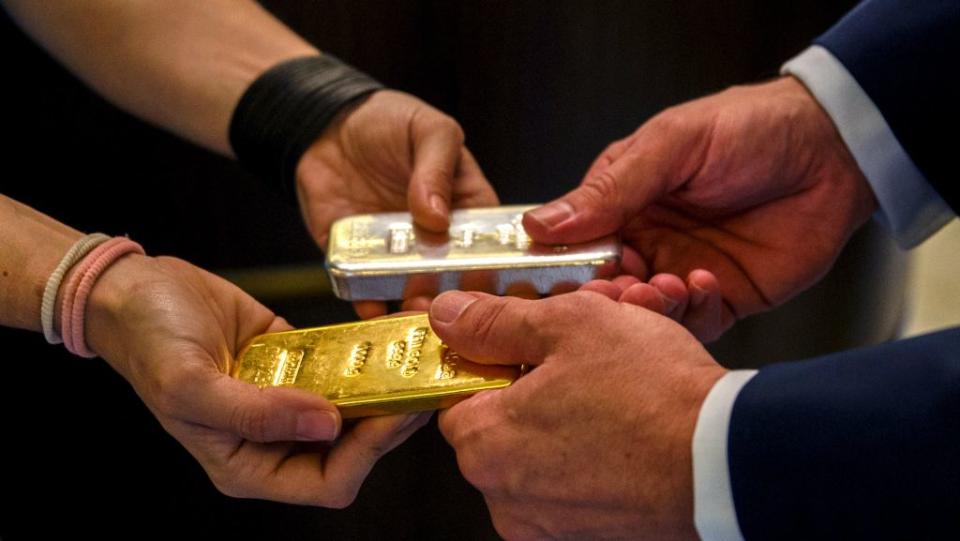Amid crypto hysteria, a startup thinks now is the time to pay for things with gold

People are going crazy for cryptocurrencies. Bitcoin just set another record above $8,000, shaking off a 25% drop earlier this month. But if the wild ride of bitcoin and other cryptocurrencies is too risky for you, a new payments startup thinks it has just the thing. Something stable, comforting, as old as money itself: gold.
Glint, a new app that launches today in the UK, offers payment services using gold. In partnership with MasterCard and Lloyds Bank, Glint users can load credit onto their account and use it to buy a portion of a gold bar to store their money. Users can then send money and gold to others with the app and use a Glint debit card to make payments in a variety of currencies, and gold, at interbank exchange rates.

Physical gold holdings are allocated to the owner and held in an independent and insured vault in Switzerland. Glint, which is regulated by the UK’s Financial Conduct Authority, plans to expand into Europe and Asia next year. The app currently supports the British pound and gold, with more currencies to come.
The effort to “reintroduce gold as money” is because the creators of Glint thought it was unfair that “money is prone to depreciate in ways we have no control over,” according to the company’s website. Jason Cozens, CEO of Glint, said: “Unlike ‘paper’ currencies, gold can’t be wiped out, devalued or corrupted.”
It’s been more than 40 years since the US cut the dollar’s ties to gold and centuries since physical gold was used a means of payment. Where some people have turned to bitcoin as an alternative to currencies controlled by governments and central banks, Glint is trying to make physical gold part of today’s electronic payments infrastructure.
Gold is still used in financial markets as a means to safeguard wealth. According to analysts at Citi, the “new normal” of heightened geopolitical tensions will boost demand for gold and push the price above $1,4000 per ounce for “sustained periods” by 2020. That said, the latest figures from the World Gold Council show that global demand for the precious metal has fallen to its lowest level since late 2009.
Gold has served as a haven for thousands of years, so if new technology can the illiquid, hard-to-move precious metal more user friendly, it might have some potential as an alternative currency for the risk averse.

Sign up for the Quartz Daily Brief, our free daily newsletter with the world’s most important and interesting news.
More stories from Quartz:

 Yahoo Finance
Yahoo Finance 